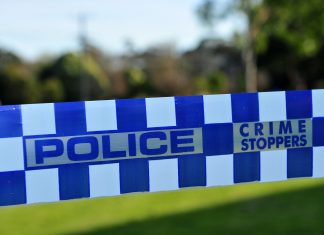Michelle Slater
Gippslanders living in high fire danger areas should leave early on hot and windy days that create dry and dangerous conditions across the region, the CFA has advised.
CFA Gippsland regional commander Michael Owen said locals should make a plan and stick to it.
Mr Owen said that although there had been recent rain in the Latrobe Valley, the region was still dry, pushed along by last week’s hot and windy days.
“If you plan to leave early, then do it, it’s no good waiting. You can replace houses and things, just take your family and go,” Mr Owen said.
“We far too often see people who have no fire training, they don’t have the correct equipment or correct attire to stay and defend.”
A CFA bushfire community survey revealed that only one in 10 Victorians in high bushfire areas would leave early on high danger days – the lowest number in seven years.
Mr Owen said many people had let their guard down in the past decade since Black Saturday but they needed to understand that the fire season was well and truly underway.
“There’s been a bit of malaise come around. We haven’t had much fire activity but this won’t be the case for much longer. The season has started and the bush is dry,” he said.
Mr Owen said people needed to take fire danger ratings into account, what this meant for them and they should respond accordingly.
“Even if you have a plan, you need situational awareness and circumstances will vary greatly. Be aware of what’s going on around you, not just in a fire, but in any emergency. Listen to the radio, TV or talk to neighbours,” he said.
CFA deputy chief officer Stephanie Rotarangi said leaving early was the safest option.
“Not when you can see flames or smell smoke. Leaving early means avoiding panic, being trapped, making the wrong choices and risking serious injury or death,” she said.
“You may feel that we say the same thing every year and to an extent we do. That’s because in a place like Victoria, we need to continually be prepared for the worst.”
Dr Rotarangi said it was not a question of if there will be bushfires this season, but a question of when and where.
“Some areas of the state, particularly in Gippsland, are extremely dry and will need many weeks of above-average rain before drought-stressed plants start to recover,” she said.
“The current weather outlook indicates a return to dry conditions and elevated fire risk.”











